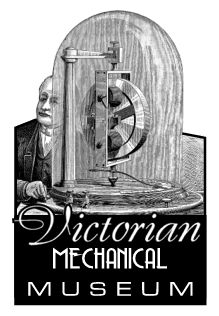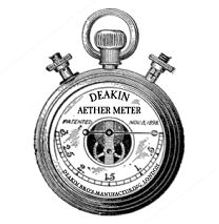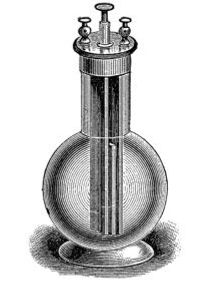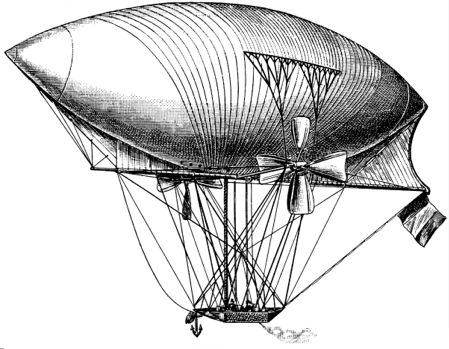The Adler Fanshaw Interrogation Transcript (Collection Item 111D)
AF: My name is Adler Fanshaw. I was born in London
CS: How old are you Mr. Fanshaw?
AF: I was born on October 10, 1860. I am 92 years old.
CS: What was your primary occupation throughout your life?
AF: I am a writer.
CS: What type of writer, sir?
AF: I was a newspaper reporter for most of my professional life. Since my retirement, I have written fiction for periodicals and have published a few novels.
CS: Where did you work as a reporter, sir?
AF: Mostly in London. After moving to America, I worked briefly for a couple of dailies in Chicago before I retired.
CS: Could you be more specific, sir? The actual dates if possible.
AF: Well . . . let me see. I began with the London Evening Gazette during the summer of . . . of 1880. I had worked for the paper for a few years already, an office boy. It was that summer I was first given actual assignments. I worked for the Gazette until it folded in . . . 1897, yes, 1897. I then worked for a few years at the Daily News. I finally managed to get in at the Telegraph, where I stayed until I moved to America in '21.
CS: So, you worked for the London Evening Gazette from 1880 until 1897. Is that correct?
AF: Yes, I believe that is correct.
CS: Mr. Fanshaw, was it during that time that you first became acquainted with the person of Geoffrey Hawkins and a number of his associates?
AF: What? What is this? This is not what I was told--
CS: Please sit down, Mr.Fanshaw.
AF: Carterman said this was about the White--
CS: Please sit down Mr. Fanshaw.
CS: Please, Mr. Fanshaw. Just answer our questions as quickly and as clearly as possible and we will take you back to your home. Please do not make this difficult.
AF: What . . . do you want?
CS: Again, Mr. Fanshaw, was it during your tenure at the London Evening Gazette when you first met the gentleman known as Geoffrey Hawkins?
AF: Yes.
CS: Could you please describe the circumstances under which you met Mr. Hawkins.
AF: Hawkins approached me about a story I had written. About murders in the rookeries. It was in '81--no . . . no it was '82, shortly after my sister died. I had been in the slums about six months by then.
CS: What was it that he wanted from you?
AF: He was trying to find someone.
CS: And just who was that, Mr. Fanshaw?
AF: A man . . . a man named Dr. Enoch Cyncad.
CS: Were you familar with this Cyncad?
AF: I had heard the name a number of times, primarily in Old Nickel.
CS: Do you know what Mr. Hawkins wanted with this Dr. Cyncad?
CS: Mr. Fanshaw?
AF: Geoffrey suspected Cyncad of a number of. . . criminal actions, I guess you would say.
CS: Do you know what types of crimes this Dr. Cyncad had committed?
AF: He was known for terrorizing the slums. It was rumored that he had individuals abducted so that he could conduct experiments . . .
CS: Mr. Fanshaw, please open the envelope that has been placed before you. Please remove the four photographs that are inside and place them on the table. Do you recognize any of these individuals?
CS: Falynne Maddock?
AF: No . . . well yes. But she would have changed her name by then. Her father had passed in '77 or '78 I believe.
CS: Were these four individuals part of some type of group or association?
AF: Only that they were all members of the Scientia Club in London.
CS: A gentlemen's club? Isn't that unlikely, considering Miss Maddock?
AF: The Scientia Club was quite progressive for the time. Ladies were admitted and even granted membership.
CS: Were you a member of this club?
AF: Yes . . . yes, I was.
CS: Mr. Fanshaw, what do you know of aether, or aetherdynamic science.
CS: Mr. Fanshaw?
AF: No . . . no, I'm afraid I'm not familiar with those terms, at least not in a scientific sense.
CS: What do you mean by that?
AF: Well, in Greek mythology, aether was a term that referred to space, or the heavens. But I didn't think that was the context of your question.
CS: So you do not have any knowledge of aether science or aetherdynamic mechanics?
AF: No, I'm afraid not.
CS: Mr. Fanshaw, I have here the July 1949 issue of Startling Stories magazine. Are you familiar with it?
AF: They've published a number of my stories. I suppose it has one of my stories in it?
CS: Yes sir, it does. The name of the story was The Battles Below. I would like to read you a short excerpt.
"The creatures emerged out of a dark chamber, intent on consuming us. I fired my disruptor but no beam emerged. It was as I feared; the aether cell had been damaged in our combat with the subterranean soldiers."
AF: It's nothing . . . just fantasy,
CS: But you just said you were not familiar with the term aether in a scientific context. Yet you certainly use it in that context in this instance. That is somewhat at odds with your earlier statement.
AF: I was writing fiction, I just threw words together . . .
CS: Mr. Fanshaw, we have to date been unable to collect any substantial information or resources concerning Mr. Hawkins and his associates. But what materials we have found frequently mention Hawkins in connection with aether mechanics or aetherdynamic science. We also have reason to believe that Hawkins was in some sort of rivalry with this Dr. Cyncad over aether resources.
CS: By your own admission, you were well acquainted with Mr. Hawkins and his friends. It then seems hardly a coincidence that you would use the term aether in a scientific context. Your apparent lack of transparency in this matter indicates that you're deliberately withholding information from us –
AF: But I don't understand. Hawkins has been largely discredited since he fell out of sight and into obscurity. He is considered by most modern academics as a scientific P. T. Barnum. Whatever you are looking for is probably contrived or fraudulent at best.
CS: You are very clever, Mr. Fanshaw. But please, reconsider the answers you have given us in regard to these matters. It is in your best interests to cooperate with us.
CS: Let us return to the text of your published story. Was this disruptor weapon you created inspired by any specialized firearm created by Hawkins or Vanderzee or Deakin?
AF: Berkley and Timothy both tinkered with different pistol designs . . .
CS: So they were in fact manufacturing weapons?
AF: I guess to some extent . . .
CS: What type of ammunition did these weapons discharge?
AF: I . . . I don't recall ever seeing one demonstrated . . .
CS: Did these weapons discharge some type of energy beam, similar to what you describe in your story?
AF: That's just fantasy . . . Buck Rogers and Flash Gordon stuff.
CS: Mr. Fanshaw, did any of these gentlemen create a particle beam weapon powered by this so-called aether energy source?
AF: No, of course not.
CS: You don't sound entirely sure of yourself, Mr. Fanshaw.
Subscribe to:
Comments (Atom)





















